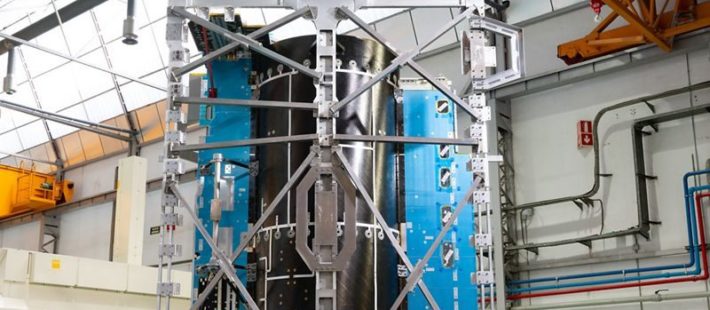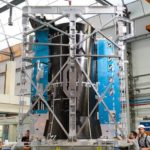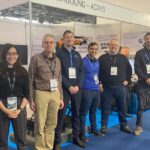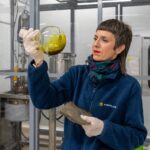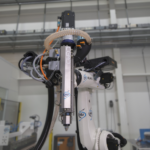Airbus Defence and Space has completed the first step in the construction of the inner structure of the European Space Agency’s (ESA) JUICE satellite. This is the beginning of its Earthly journey through different Airbus sites in Europe (Lampoldshausen, Friedrichshafen and Toulouse) towards final integration.
Airbus is building the JUICE (JUpiter ICy moons Explorer) spacecraft for ESA, which will investigate the potential for Jupiter’s icy moons Europa, Callisto and Ganymede to harbour habitable environments such as subsurface oceans. JUICE will also carry out observations of Jupiter, its atmosphere, magnetosphere, other satellites and rings. As prime contractor, Airbus is leading a consortium of more than 60 companies across Europe on the project.
The inner structure or SSTS (Structure, Shielding and Thermal control Subsystem), built at the Madrid-Barajas site of Airbus, is carbon fibre and is composed of the central load carrying cylinder, shear panels, two equipment protecting Vaults, the Thermal Control System which includes a heat pipes network and multilayer insulation, and secondary elements such as 13 additive manufacturing brackets. This key element weighs 580 kg and will support the satellite’s weight of 5,300 kg (of which about 3,000 kg is chemical propellant). Jupiter’s distance from the Sun will make it challenging to generate energy. For this reason the spacecraft is equipped with solar arrays with a total surface of 85 m², the largest ever built for any interplanetary spacecraft.
In May 2022, JUICE will begin a 7 year cruise to Jupiter, travelling more than 600 million kilometres through space, to carry out its three and a half year mission at the Jovian system.
Source: Composites portal


